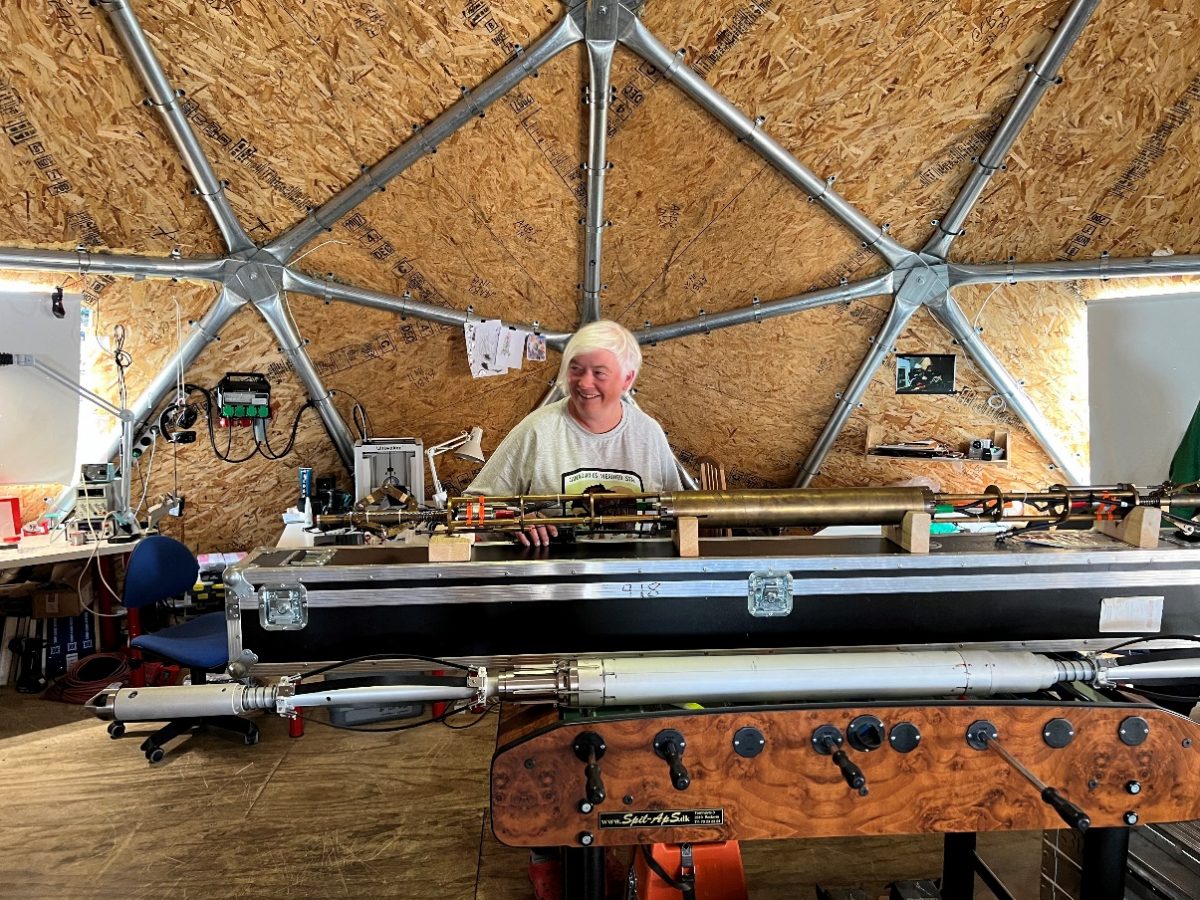
Dorthe in her lab in the Dome above ground working on her next-generation drilling system with sensors to report on events underground during drilling.
Researchers discover evidence of melting ice sheet in Greenland
Researchers from the University of Manitoba and fifteen other institutions have made a breakthrough discovery in understanding climate change and its implications, revealing that at least 20% of Greenland was green 416,000 years ago, a new study in the journal Science shows.
The results shed light on the stability of the Greenland ice sheet over the last two and a half million years. Moderate warming led to melting of at least 20% of the total Greenland Ice sheet volume. These results suggest that the ice sheet is more vulnerable to melting from human-caused climate change than previously thought – and will be vulnerable to rapid melting in coming centuries.
University of Manitoba Professor Dorothe Dahl-Jensen is the lead scientist on the team. She is a Canada Excellence Research Chair in Arctic Ice, Freshwater-Marine Coupling and Climate Change in the Centre for Earth Observation Science (CEOS) at the Clayton H. Riddell Faculty of Environment, Earth and Resources.
“This discovery suggests a tundra and forest covered Greenland landscape many years ago and warns of melting of the full ice sheet if warming continues” said Dorthe Dahl-Jensen. “Unless we can dramatically lower the concentration of carbon dioxide in the atmosphere, this is the future we are facing. A newly granted ERC Synergy grant ‘Green2Ice’ will allow us to continue these studies and include all the deep Greenland ice cores”.
The scientists used sediment from the first ice core drilled in Greenland at Camp Century, a secret U.S. Army base in the 1960s, to make the discovery. They applied advanced luminescence and isotope techniques to provide direct evidence of the timing and duration of the ice-free period.
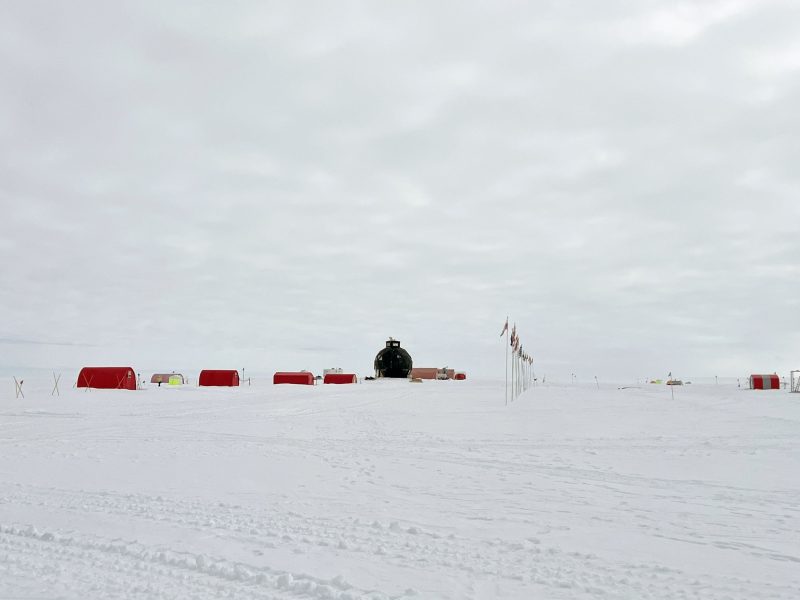
Research camp including the central dome structure and accommodation units.
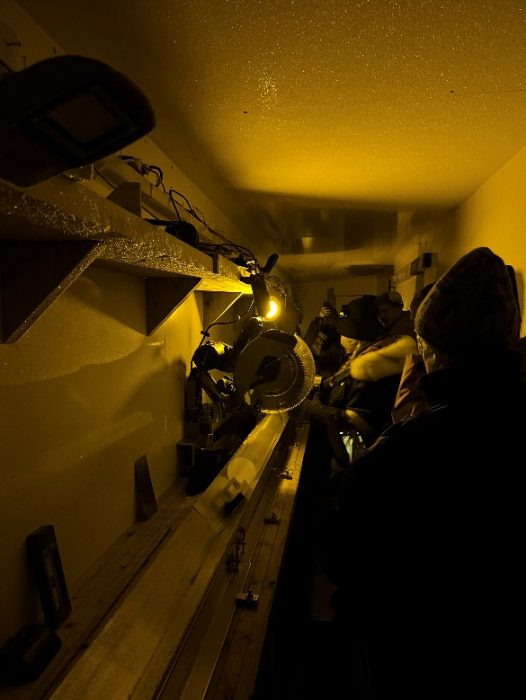
Under-ice laboratory in the research camp where analysis is conducted. The orange light is used to preserve the luminescence of the samples.
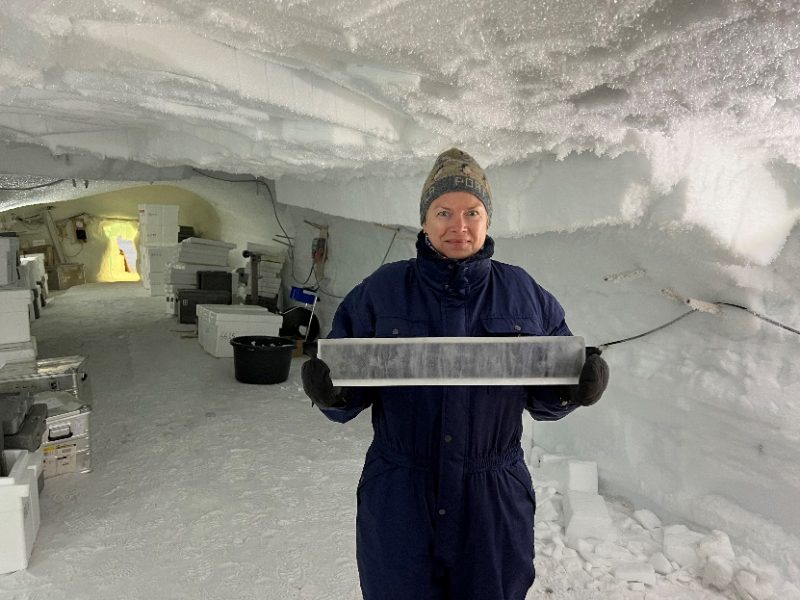
Bettina Ovgård Petersen, Senior Consultant Civil Military Cooperation, Science Liaison Officer, Joint Arctic Command of Denmark holding a 90,000 year old, 3 cm thick slab of ice core from the beginning of the ice age.
UM’s Vice-President of Research and International Dr. Mario Pinto was able to join the research team in Greenland recently to learn more about their work.
“Congratulations to the entire science research team, including UM’s Dr. Dorthe Dahl-Jensen, on this discovery and pivotal moment in climate change research,” said Dr. Mario Pinto, Vice President (Research and International). “I was pleased to join the group in Greenland recently and tour Camp Century. The knowledge they have uncovered will help build our collective understanding of melting Arctic ice and the consequences of climate change world-wide.”
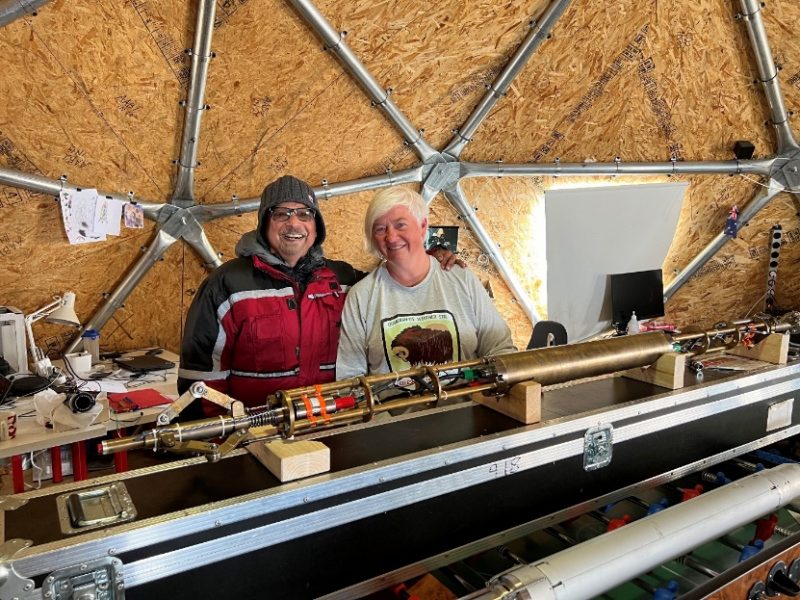
Mario and Dorthe in her lab in the Dome structure above ground.
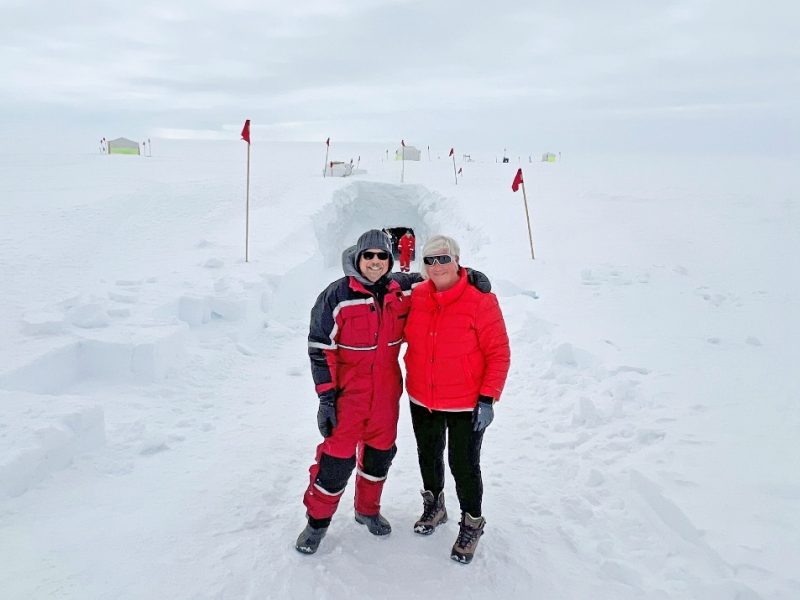
Mario and Dorthe standing at the entrance to “The Pit” and access to the underground labs.
All photographs provided by Dr. Mario Pinto, Vice-President (Research and International).
Research at the University of Manitoba is partially supported by funding from the Government of Canada Research Support Fund.






